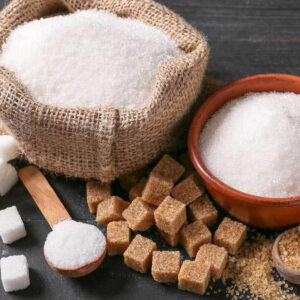Learning about beet sugar vs cane sugar can help shoppers decide which matches their preferences better.
Learning about beet sugar vs cane sugar can help shoppers decide which matches their preferences better.
Blog Article
Discover the Uses and Benefits of Beet Sugar Vs Cane Sugar in Your Daily Diet
Exploring the distinct top qualities of beet and cane sugar discloses even more than just their sweetening capabilities; it highlights their one-of-a-kind effect on wellness and cookeries. Beet sugar, recognized for its subtle flavor, is commonly favored in fragile desserts, whereas cane sugar, with its hint of molasses, includes richness to durable dishes. Each kind holds its own dietary profile and glycemic effects, inviting a deeper understanding of their duties in a well balanced diet plan and sustainable usage practices.
Beginning and Manufacturing Procedures of Beet and Cane Sugar

The distinctive climates and soil kinds needed for growing sugar beets and sugarcane contribute to distinctions in their farming techniques and geographic distribution, affecting the business economics and sustainability of their production. beet sugar vs cane sugar.
Nutritional Contrast In Between Beet Sugar and Cane Sugar
In spite of stemming from various plants, beet sugar and cane sugar are nutritionally really similar, both mainly including sucrose. Each supplies concerning 4 calories per gram, translating to roughly 16 calories per teaspoon. Structurally, both sugars are composed of around 99.95% sucrose, with marginal quantities of various other materials like dampness and trace element, which do not considerably change their dietary accounts.

Inevitably, when choosing in between beet sugar and cane sugar based on dietary web content alone, both offer the same advantages and disadvantages as they are basically forms of the very same molecule-- sucrose, supplying quick power without other nutrients.
Influence On Health: Glycemic Index and Caloric Material
Exploring additionally into the effects of beet sugar click resources and cane sugar on wellness, it is essential to consider their glycemic index and calorie content. Both sugars are identified as sucrose, which is composed of sugar and fructose. This make-up leads them to have a similar influence on blood sugar degrees. The glycemic index (GI) of both beet and cane sugar is around 65, classifying them as high-GI foods, which can create fast spikes in blood sugar levels. This is an essential element for people taking care of diabetic issues or those trying to stabilize their power levels throughout the day.
Each kind of sugar includes around 4 calories per gram, making their caloric web content equivalent. For those monitoring calorie intake, specifically when handling weight or metabolic wellness conditions, understanding this equivalence is crucial (beet sugar vs cane sugar). Extreme intake great post to read of any type of high-calorie, high-GI food can add to health and wellness issues such as weight problems, heart disease, and insulin resistance.
Environmental and Economic Factors To Consider of Sugar Production
Beyond wellness effects, the production of beet and cane sugar likewise increases considerable environmental and financial issues. Sugar beet farming has a tendency to require cooler environments and has a lower geographical footprint contrasted to sugar cane, which thrives in exotic regions. Both plants are intensive in terms of water use and land occupation, possibly leading to logging and water deficiency. Financially, the international sugar market is highly unstable, affected by adjustments in worldwide profession plans and aids. Many countries incentivize sugar manufacturing via financial support, skewing market value and impacting small farmers adversely.
In addition, the use of pesticides and fertilizers in both beet and cane sugar growing can cause dirt destruction and pollution, further affecting biodiversity and regional water bodies (beet sugar vs cane sugar). The choice between growing sugar beet or cane usually rests on regional ecological problems and economic elements, making the sustainability of sugar manufacturing an intricate concern
Culinary Applications and Taste Distinctions
While the ecological and financial aspects of sugar production are without a doubt considerable, the choice in between beet and cane sugar likewise influences see here cooking applications and flavor accounts. Beet sugar, obtained from the sugar beet plant, is known for its extremely neutral taste.
Walking cane sugar, extracted from sugarcane, typically preserves molasses traces, which present a distinctive richness and depth. The minor variant in moisture material in between beet and cane sugar can influence the texture and consistency of meals, making cane sugar a recommended choice for certain dishes that benefit from its special homes.

Conclusion
Finally, both beet and cane sugar have unique beginnings and production processes, using comparable dietary profiles with minor differences in sodium web content and taste. While their effect on health, especially pertaining to glycemic index and calories, is comparable, the option in between them usually comes down to ecological, financial variables, and details cooking requirements. Recognizing these facets can lead customers in making notified decisions that align with their health objectives and taste choices.
Report this page